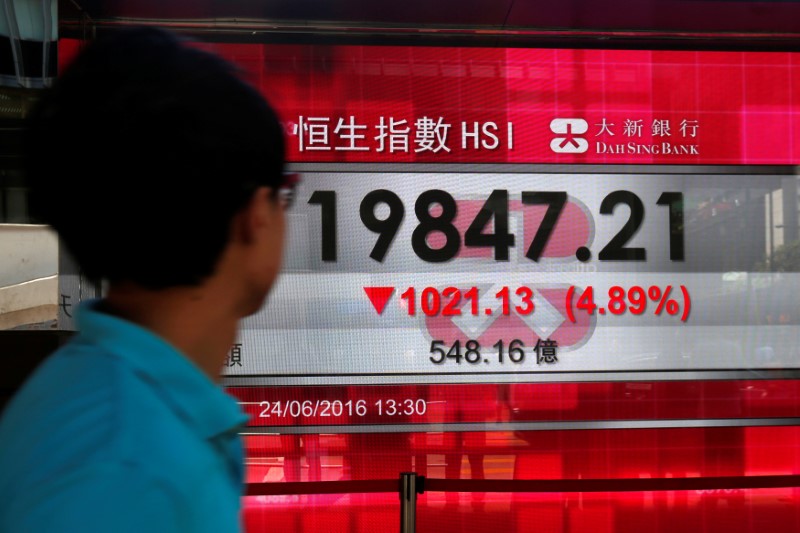Investing.com -- Asian stocks sank on Wednesday, with Chinese markets leading declines as manufacturing activity shrank for a second straight month, while broader sentiment remained on edge ahead of a vote to raise the U.S. debt ceiling.
China’s Shanghai Shenzhen CSI 300 and Shanghai Composite indexes fell 1% and 0.6%, respectively, with the blue-chip index at its lowest level in six months. Official data showed that the country’s manufacturing sector shrank in May, pulling back overall business activity and pointing to a slowdown in an economic rebound seen earlier in the year.
Chinese indexes were also set to close between 3.6% and 6% lower for May, having largely erased their gains for the year amid increasing uncertainty over a recovery in Asia’s largest economy.
Losses in Chinese stocks spilled over into Hong Kong, dragging the Hang Seng index 2.5% lower to its weakest level in six months. The index was also set to lose nearly 9% in May.
Chinese markets were also weighed by fears of worsening ties between Washington and Beijing, after China declined a U.S. request for a meeting between defense ministers.
Concerns over China weighed on broader Asian markets, particularly those with high trade exposure to the country. Australia’s ASX 200 index sank 1.2%, while the Taiwan Weighted index lost 0.5%.
The ASX 200 was also pressured by data showing a bigger-than-expected rise in Australian inflation through April, pointing to more interest rate hikes by the Reserve Bank in the coming months.
Japan’s Nikkei 225 index sank 1.2%, while the broader TOPIX fell 1% as investors locked in recent profits. Both indexes retreated from 33-year highs, but were set to gain between 3.9% and 8% in May, making them the best performers in Asia for the month.
A strong earnings season and optimism over a dovish Bank of Japan had spurred steep gains in the Nikkei through May. But the rally may now be stalling, given that Japanese indexes are at levels last seen during the 1990s bubble.
Japanese industrial production also unexpectedly shrank in April, while retail sales grew less than expected.
Broader Asian markets fell on Wednesday as investors remained on edge over the U.S. debt ceiling. While top Republican and Democrat lawmakers said they had reached an agreement to raise the ceiling, it now faces a vote in Congress later in the day.
This also comes just days ahead of a deadline for a U.S. default, which could have dire consequences for the global economy.
